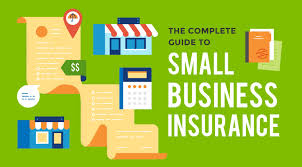Small business insurance is essential for protecting your business from risks, including lawsuits, property damage, employee injuries, and more. The right coverage depends on your industry, business size, and specific risks. Here’s a breakdown of the most common types of small business insurance:
1. General Liability Insurance:
- What it covers: Protects your business from claims of bodily injury, property damage, or personal injury (like libel or slander) caused by your business operations.
- Pros:
- Covers a wide range of potential legal claims.
- Required by many landlords or clients before doing business.
- Cons:
- Does not cover damages to your own property or injuries to employees.
- Ideal For: All small businesses, particularly those with a physical location, customer interactions, or client contracts.
2. Commercial Property Insurance:
- What it covers: Pays for damage to your business property due to fire, theft, vandalism, or other covered events.
- Pros:
- Protects buildings, inventory, equipment, and furniture.
- Some policies cover loss of income if your business is unable to operate due to property damage.
- Cons:
- May not cover natural disasters like floods or earthquakes unless specifically added.
- Ideal For: Businesses with physical assets, such as retail stores, offices, and warehouses.
3. Business Owner’s Policy (BOP):
- What it covers: Combines general liability and commercial property insurance into one package.
- Pros:
- More affordable than buying separate policies.
- Convenient and tailored for small businesses.
- Cons:
- May not include coverage for specific risks like professional liability or data breaches unless added.
- Ideal For: Small to medium-sized businesses looking for a comprehensive, cost-effective insurance package.
4. Workers’ Compensation Insurance:
- What it covers: Provides benefits to employees who suffer work-related injuries or illnesses, including medical expenses, lost wages, and rehabilitation.
- Pros:
- Required by law in most states if you have employees.
- Helps protect your business from lawsuits related to workplace injuries.
- Cons:
- Premiums can be high, especially in industries with higher risks.
- Ideal For: Any business with employees, especially those in physically demanding or hazardous fields.
5. Professional Liability Insurance (Errors and Omissions Insurance):
- What it covers: Protects against claims of negligence, mistakes, or failure to deliver promised services.
- Pros:
- Essential for businesses that provide professional advice or services, such as consultants, lawyers, or accountants.
- Cons:
- Does not cover physical injuries or property damage.
- Ideal For: Service-based businesses or professionals providing advice or specialized expertise.
6. Product Liability Insurance:
- What it covers: Protects your business from claims related to injuries or damages caused by products you manufacture, distribute, or sell.
- Pros:
- Essential for businesses that sell physical products.
- Covers a wide range of potential claims, including defective design or manufacturing.
- Cons:
- May not cover all product-related risks unless tailored to specific needs.
- Ideal For: Manufacturers, distributors, and retailers.

7. Commercial Auto Insurance:
- What it covers: Covers vehicles used for business purposes in case of accidents, theft, or damage.
- Pros:
- Essential if your business owns or leases vehicles or if employees use personal vehicles for work-related tasks.
- Cons:
- Does not cover personal vehicles used occasionally for business unless added.
- Ideal For: Businesses with delivery services, transportation, or frequent driving.
8. Cyber Liability Insurance:
- What it covers: Protects against data breaches, hacking, or other cyber-related attacks. It covers the cost of recovering data, notifying affected customers, and legal fees.
- Pros:
- Provides critical protection for businesses that store sensitive customer or financial information online.
- Cons:
- May not be necessary for all businesses, especially those without digital operations.
- Ideal For: Businesses with an online presence or that handle sensitive customer data.
Factors to Consider When Choosing Small Business Insurance:
- Industry: Some industries have specific risks. For example, construction companies may need more robust liability coverage, while tech companies might prioritize cyber liability insurance.
- Location: Natural disasters, crime rates, and local regulations can affect your insurance needs.
- Number of Employees: If you have employees, workers’ compensation is often required.
- Client Contracts: Some clients or vendors may require specific coverage, like general liability or professional liability, before doing business with you.
Conclusion:
The right small business insurance depends on your business type, industry, and specific risks. General liability, property insurance, and workers’ compensation are essential for most businesses. However, depending on your operations, additional coverage like cyber liability, professional liability, or a business owner’s policy might be necessary to protect your business comprehensively.
Would you like assistance in identifying specific coverage needs based on your industry
